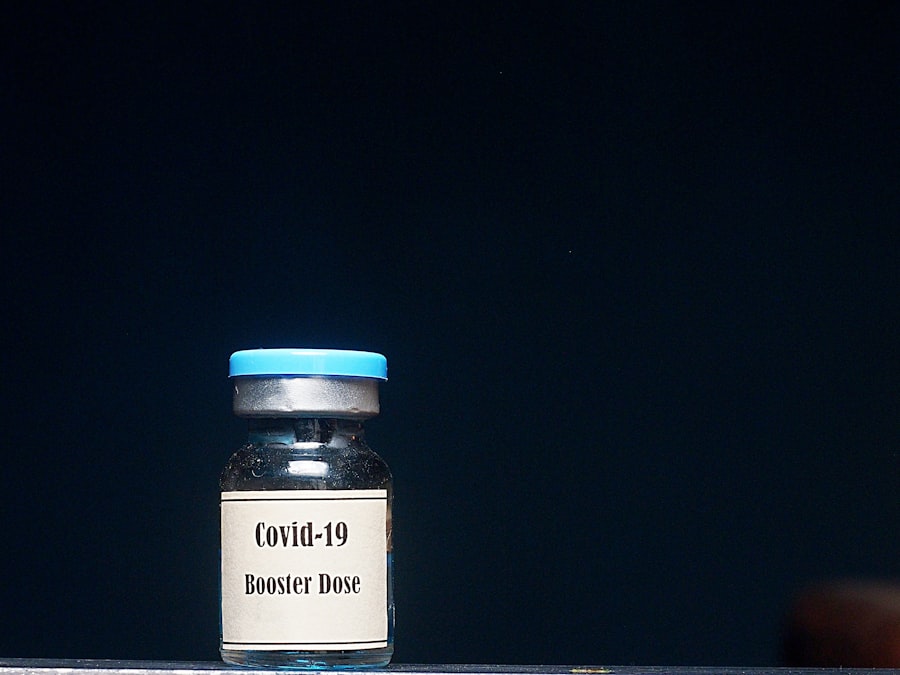Depersonalization and derealization, often referred to collectively as DPDR, are dissociative experiences that can leave you feeling detached from yourself or your surroundings. When you experience depersonalization, you may feel as though you are an observer of your own life, as if you are watching yourself from a distance. This can manifest as a sense of unreality regarding your thoughts, feelings, or body.
On the other hand, derealization involves a sense of disconnection from the world around you, where your environment may seem foggy, dreamlike, or distorted.
The onset of DPDR can be sudden or gradual, and it can occur in response to stress, anxiety, or trauma.
While many people may experience fleeting moments of depersonalization or derealization during particularly stressful times, for some, these feelings can become chronic and significantly impact daily functioning. Understanding the nature of DPDR is crucial for recognizing its symptoms and seeking appropriate support. It is essential to acknowledge that these experiences are not uncommon and can happen to anyone under certain circumstances.
Key Takeaways
- Depersonalization and derealization are dissociative disorders that involve feeling disconnected from oneself and the world around them.
- Common symptoms of DPDR include feeling like an outside observer of one’s thoughts and actions, experiencing a sense of unreality, and feeling emotionally numb.
- DPDR can have a significant psychological impact, leading to feelings of anxiety, depression, and difficulty concentrating.
- Triggers for DPDR symptoms can include stress, trauma, substance abuse, and certain medications.
- DPDR symptoms can impact daily life by affecting work, relationships, and overall quality of life.
Common Symptoms of DPDR
The symptoms of DPDR can vary widely from person to person, but there are several common experiences that many individuals report. One prevalent symptom is a persistent feeling of being disconnected from one’s own thoughts or body. You might find yourself questioning whether your actions are truly your own or if you are merely going through the motions of life without genuine engagement.
This can lead to feelings of confusion and frustration as you grapple with the sensation of being an outsider in your own existence. Another common symptom is the perception that the world around you is not real. You may notice that familiar places seem strange or that people appear as if they are part of a movie rather than real life.
This altered perception can create a sense of unease and anxiety, as you struggle to reconcile your experiences with what you know to be true. Additionally, some individuals may experience emotional numbness or a lack of connection to their feelings, making it difficult to engage with others or enjoy activities that once brought joy.
The Psychological Impact of DPDR

The psychological impact of DPDR can be profound and far-reaching. Living with these dissociative symptoms can lead to increased anxiety and depression, as the constant feeling of detachment can create a sense of isolation. You may find yourself withdrawing from social interactions or avoiding situations that trigger your symptoms, leading to a cycle of loneliness and despair.
This emotional toll can exacerbate feelings of inadequacy and self-doubt, making it challenging to maintain a positive self-image. Moreover, the unpredictability of DPDR symptoms can contribute to heightened stress levels. You might feel anxious about when the next episode will occur or how long it will last, which can lead to a constant state of vigilance.
This ongoing stress can further impact your mental health, creating a vicious cycle that is difficult to break. Understanding the psychological ramifications of DPDR is essential for developing effective coping strategies and seeking appropriate support.
Triggers for DPDR Symptoms
| Trigger | Description |
|---|---|
| Stress | High levels of stress can trigger DPDR symptoms |
| Trauma | Experiencing a traumatic event can lead to DPDR symptoms |
| Substance abuse | Abusing drugs or alcohol can trigger DPDR symptoms |
| Anxiety | High levels of anxiety can exacerbate DPDR symptoms |
Identifying triggers for DPDR symptoms is a crucial step in managing your experiences. Common triggers include high-stress situations, traumatic events, or significant life changes. For instance, you may notice that your symptoms intensify during periods of intense anxiety or after experiencing a traumatic event.
Recognizing these patterns can help you anticipate when you might be more vulnerable to dissociative episodes. Additionally, certain environmental factors can also serve as triggers. For example, being in crowded places or experiencing sensory overload may exacerbate feelings of depersonalization or derealization.
It’s important to pay attention to your surroundings and emotional state to better understand what might provoke your symptoms. By identifying these triggers, you can take proactive steps to minimize their impact on your daily life.
How DPDR Symptoms Can Impact Daily Life
The impact of DPDR symptoms on daily life can be significant and multifaceted. You may find that simple tasks become overwhelming when you feel disconnected from yourself or your environment. Activities such as driving, socializing, or even going to work can become daunting challenges when you are grappling with feelings of unreality.
This can lead to avoidance behaviors, where you choose to stay home rather than face situations that might trigger your symptoms. Furthermore, the effects of DPDR can extend into your personal relationships.
You might find it difficult to communicate your feelings or engage in meaningful conversations when you feel detached from reality. This disconnect can strain relationships and create additional emotional burdens as you navigate the complexities of living with DPDR.
Coping Strategies for Managing DPDR Symptoms

Developing effective coping strategies is essential for managing the symptoms of DPDR. One approach is grounding techniques, which help anchor you in the present moment and reconnect with your surroundings. Simple practices such as focusing on your breath, engaging in mindfulness exercises, or using sensory stimuli—like holding an object with a distinct texture—can help bring you back to reality when you feel detached.
Another helpful strategy is maintaining a routine that includes regular physical activity and self-care practices. Exercise has been shown to reduce anxiety and improve overall well-being, which can be particularly beneficial for those experiencing DPDR symptoms. Additionally, incorporating relaxation techniques such as yoga or meditation into your daily routine can help reduce stress levels and promote a sense of calm.
Seeking Professional Help for DPDR
If you find that your experiences with DPDR are significantly impacting your quality of life, seeking professional help is an important step toward healing. A mental health professional can provide support and guidance tailored to your specific needs. Therapy options such as cognitive-behavioral therapy (CBT) have been shown to be effective in treating dissociative disorders by helping you reframe negative thought patterns and develop healthier coping mechanisms.
In some cases, medication may also be recommended to help manage symptoms associated with anxiety or depression that often accompany DPDR. A psychiatrist can work with you to determine the best course of treatment based on your individual circumstances. Remember that seeking help is a sign of strength and an important step toward regaining control over your life.
Understanding the Difference Between DPDR and Other Mental Health Conditions
It’s essential to differentiate between DPDR and other mental health conditions that may present similar symptoms. For instance, anxiety disorders often involve feelings of panic or intense worry but do not typically include the dissociative experiences characteristic of DPDR. Similarly, while depression may lead to feelings of detachment or numbness, it does not encompass the same sense of unreality associated with depersonalization and derealization.
Understanding these distinctions can help you communicate more effectively with mental health professionals and ensure that you receive appropriate treatment for your specific experiences. It’s important to advocate for yourself and seek clarification if you feel uncertain about your diagnosis or treatment plan.
The Connection Between DPDR and Trauma
There is a well-established connection between trauma and the development of DPDR symptoms. Many individuals who experience significant trauma—whether physical, emotional, or psychological—may find themselves grappling with dissociative experiences as a coping mechanism. In these instances, depersonalization and derealization serve as protective responses that allow individuals to distance themselves from overwhelming emotions associated with their trauma.
Recognizing this connection is crucial for understanding the root causes of your symptoms and addressing them effectively in therapy. Working through past traumas with a qualified therapist can help you process these experiences and reduce the likelihood of dissociative episodes in the future.
How DPDR Symptoms Can Impact Relationships
DPDR symptoms can have a profound effect on your relationships with others. When you feel disconnected from yourself or the world around you, it can be challenging to engage fully in social interactions or maintain meaningful connections with friends and family. You may find yourself withdrawing from social situations out of fear that your symptoms will become overwhelming in public settings.
This withdrawal can lead to misunderstandings among loved ones who may not fully grasp what you are experiencing. They might perceive your behavior as aloofness or disinterest rather than recognizing it as a symptom of a mental health condition. Open communication about your experiences is vital for fostering understanding and support within your relationships.
The Importance of Self-Care When Dealing with DPDR
Self-care plays a crucial role in managing the symptoms of DPDR and promoting overall well-being. Prioritizing activities that bring you joy and relaxation can help counteract feelings of detachment and disconnection. Whether it’s engaging in creative pursuits, spending time in nature, or practicing mindfulness techniques, finding what works for you is essential.
Additionally, maintaining a healthy lifestyle through proper nutrition, regular exercise, and adequate sleep can significantly impact your mental health. Taking care of your physical well-being creates a solid foundation for addressing emotional challenges associated with DPDR. Remember that self-care is not selfish; it is an essential component of healing and recovery.
In conclusion, understanding depersonalization and derealization is vital for recognizing their impact on daily life and mental health. By identifying symptoms, triggers, and effective coping strategies while seeking professional help when needed, you can navigate the complexities of DPDR more effectively. Embracing self-care practices will further enhance your journey toward healing and reconnection with yourself and the world around you.
In exploring the complex experiences of depersonalization and derealization (DPDR) symptoms, it’s essential to understand the psychological underpinnings and therapeutic approaches that can aid those affected. An insightful article on this topic can be found on Unplugged Psychology’s website, which delves into the nuances of DPDR and offers guidance on managing these symptoms. For a comprehensive overview, you can read more about it here. This resource provides valuable information for both individuals experiencing DPDR and mental health professionals seeking to support their clients effectively.
LEARN MORE About Unmasking the Mysteries Behind Depersonalization and Derealization
FAQs
What are depersonalization and derealization (DPDR) symptoms?
Depersonalization and derealization are dissociative symptoms that can occur as a result of various mental health conditions, such as anxiety, depression, trauma, or substance abuse. Depersonalization involves feeling detached from oneself, as if observing one’s own thoughts, feelings, and actions from a distance. Derealization involves feeling disconnected from the external world, as if things appear unreal or distorted.
What are the common symptoms of depersonalization and derealization?
Common symptoms of depersonalization and derealization include feeling like an outside observer of one’s thoughts or body, feeling emotionally numb, experiencing distorted perceptions of time, feeling disconnected from one’s surroundings, and feeling like the world is unreal or artificial.
What causes depersonalization and derealization symptoms?
Depersonalization and derealization symptoms can be caused by various factors, including stress, trauma, anxiety, depression, substance abuse, and certain mental health disorders. These symptoms can also occur as a result of sleep deprivation, migraines, or other medical conditions.
How are depersonalization and derealization symptoms diagnosed?
Depersonalization and derealization symptoms are typically diagnosed through a thorough evaluation by a mental health professional, such as a psychiatrist or psychologist. The evaluation may include a comprehensive assessment of the individual’s symptoms, medical history, and any underlying mental health conditions.
What are the treatment options for depersonalization and derealization symptoms?
Treatment for depersonalization and derealization symptoms may include psychotherapy, such as cognitive-behavioral therapy (CBT) or dialectical behavior therapy (DBT), to help individuals understand and manage their symptoms. Medications, such as antidepressants or anti-anxiety medications, may also be prescribed to alleviate symptoms. Additionally, stress management techniques and lifestyle changes may be recommended to help individuals cope with these symptoms.




